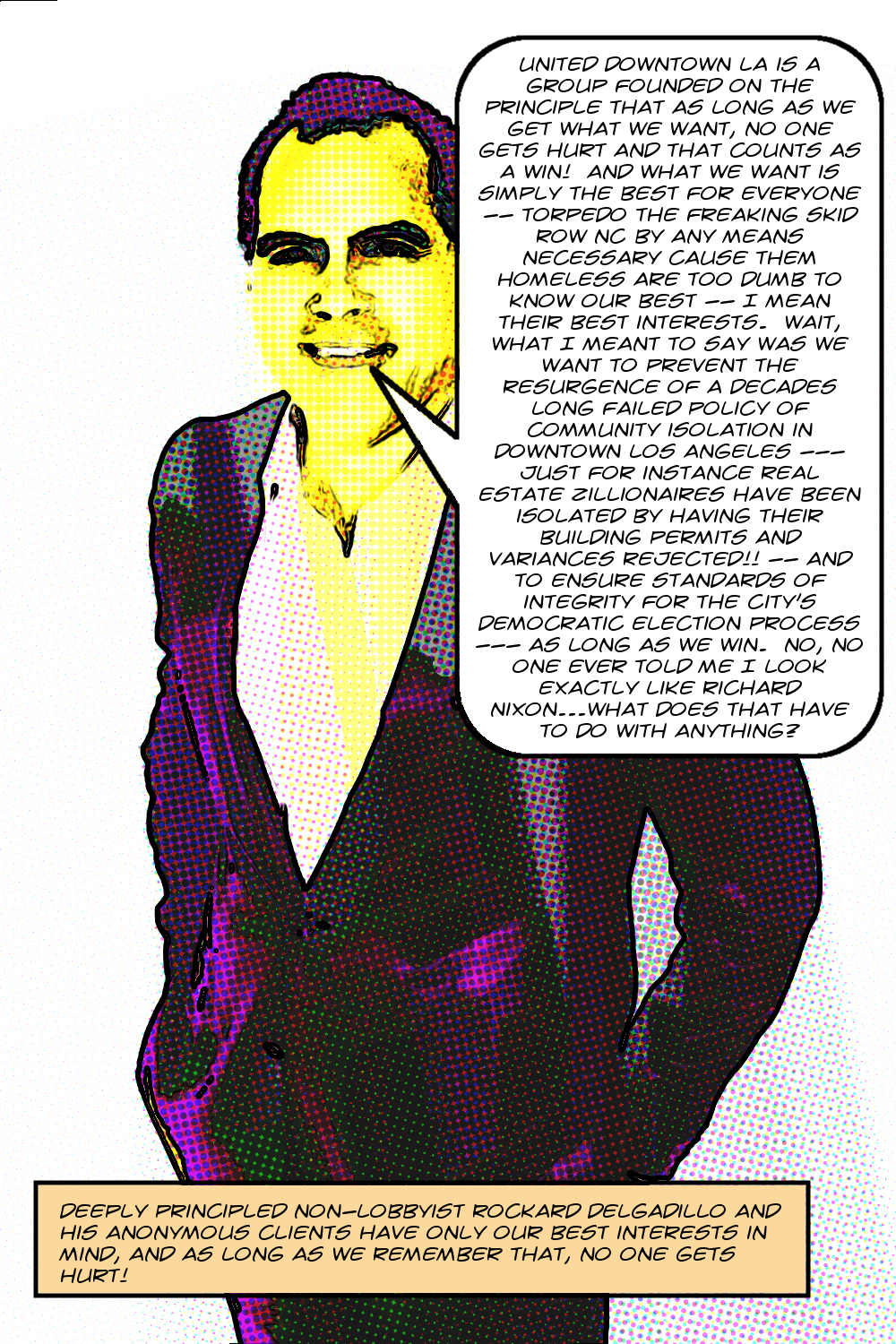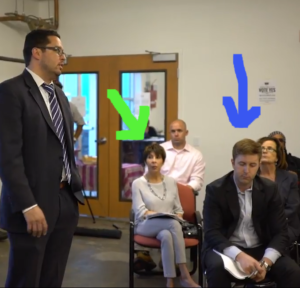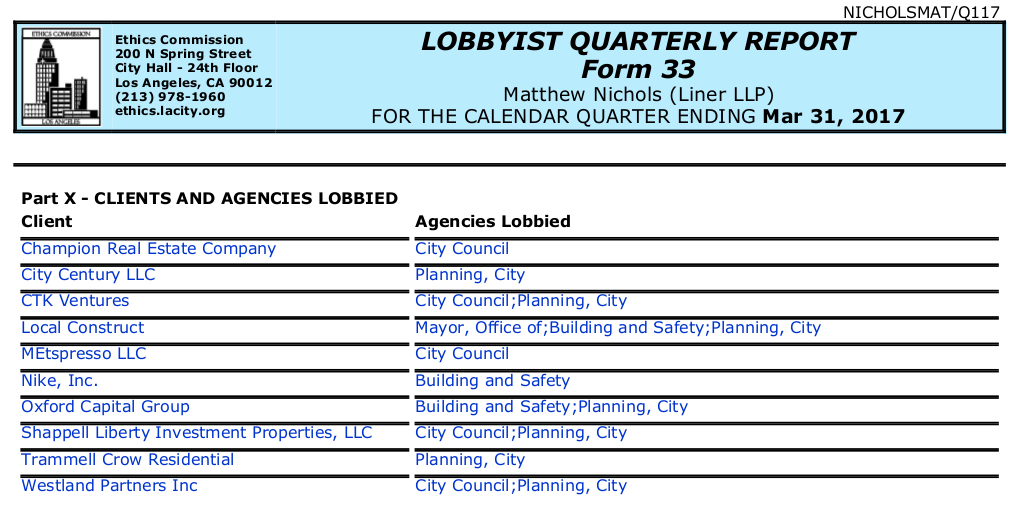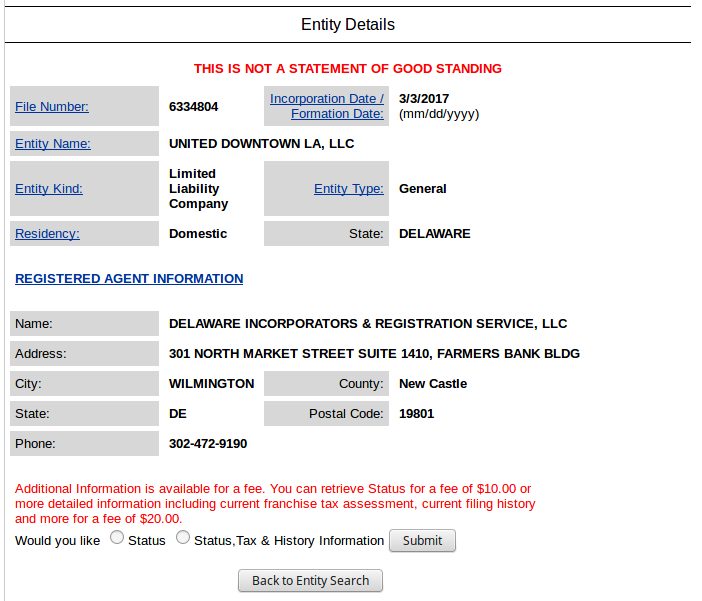 The Los Angeles Municipal Lobbying Ordinance, known to the cognoscenti as the MLO and found at Article 8 of the LAMC,1 regulates professional paid lobbyists in the City of Los Angeles.2 It also regulates so-called lobbying firms, which are companies that employ lobbyists to lobby on behalf of paying clients.3
The Los Angeles Municipal Lobbying Ordinance, known to the cognoscenti as the MLO and found at Article 8 of the LAMC,1 regulates professional paid lobbyists in the City of Los Angeles.2 It also regulates so-called lobbying firms, which are companies that employ lobbyists to lobby on behalf of paying clients.3
One requirement that the MLO puts on lobbying firms and lobbyists is registration with the City.4 In particular, it is required5 that:
A lobbyist or lobbying firm shall register each client on whose behalf or from which the lobbyist or lobbying firm receives or becomes entitled to receive $250 or more in a calendar quarter for engaging in lobbying activities related to attempting to influence municipal legislation.
Note also that you might rightly wonder if the Skid Row Neighborhood Council Formation process counts as “municipal legislation.” It does, but the reason’s a little technical.6 Also, note that Liner LLP is a lobbying firm and they filed the required registration form for 2017, listing all their clients. And, although Rocky Delgadillo is employed by Liner, he’s not registered as a lobbyist himself. However, when he wrote his famous letter to DONE advocating against the SRNC he wrote as a Liner employee.
It’s almost certain that Liner received the negligible sum of $250 from their client, United DTLA, for their services. According to the MLO,7 then, Liner is required to disclose “The client’s name, business or residence address, and business or residence telephone number” as well as “The item or items of municipal legislation for which the firm was retained to represent the client.” But look again at Liner’s registration form. There is nothing there about their client, United DTLA.
Naturally, though, it’s possible that lobbying firms might add clients after they file their annual registrations. In this case they registered on January 1, 2017, but certainly didn’t start representing United DTLA until around February and quite possibly not until March. The law has a procedure for this kind of thing:8
Lobbyists and lobbying firms shall file amendments to their registration statements within 10 days of any change in information required to be set forth on the registration statement.
Take yet another look at Liner’s registration form. You can see that it was amended on April 27, which is long after Liner’s representation of United DTLA began, but there is no mention of this client. This is the first likely violation of the MLO arising from Liner’s anti-SRNC work.
Next, lobbying firms are also required to file quarterly reports of their activity with the CEC.9 These reports are due by the end of the month following a given quarter. They are required to include,10 among other things:
The name, address and telephone number of each client that is required to be registered and was represented by the firm during the reporting period; a description of each item of municipal legislation for which the firm or its lobbyists represented the client during the reporting period; the total amount of payments received by the firm from each client (including all fees, reimbursements for expenses and other payments) during the reporting period for such representation.
Liner’s work for United DTLA took place in Q1 2017, so their report, duly submitted on April 30, should have listed this client and the required information. But it does not. This is the second likely violation of the MLO arising from Liner’s anti-SRNC work.


It’s sad to note that even if Liner had followed the law and disclosed the fact that it was lobbying on behalf of United DTLA, they would also have had to disclose how much the campaign cost (that is, the value of 30 pieces of silver at modern exchange rates) but little else. You see, United DTLA is incorporated in Delaware (there’s an image of their registration information somewhere near this paragraph).

Big corporations, small-time businesses, rogues, scoundrels and worse — all have turned up at Delaware addresses in hopes of minimizing taxes, skirting regulations, plying friendly courts or, when needed, covering their tracks. Federal authorities worry that, in addition to the legitimate businesses flocking here, drug traffickers, embezzlers and money launderers are increasingly heading to Delaware, too. It’s easy to set up shell companies here, no questions asked.
And that’s exactly what these United DTLA people are doing: skirting regulations and covering their tracks. The MLO starts with a “Findings” section, which states its purposes. I’m not sure how much legal force such language has, but it’s enough to show that, even if Liner were to comply with the disclosure laws and list this anonymous Delaware shell on its filings with the Ethics Commission, the regulation would still have been skirted:
The following findings are adopted in conjunction with the enactment of this article:
1. City government functions to serve the needs of all citizens.
2. The citizens of the City of Los Angeles have a right to know the identity of interests which attempt to influence decisions of City government, as well as the means employed by those interests.
…
4. Complete public disclosure of the full range of activities by and financing of lobbyists and those who employ their services is essential to the maintenance of citizen confidence in the integrity of local government.
It’s not clear what, if anything, can be done to prevent this kind of shady anonymous lobbying. Obviously corporations have a right to lobby government at all levels.13 And, obviously if tragically, Delaware at least presently has the right to allow anonymous corporations to register. And also, the Full Faith and Credit Clause of the Constitution means that California has to recognize Delaware corporations. None of these pieces of the puzzle can be changed very easily without disturbing a lot of extremely important well-established legal mechanisms and the unintended consequences that would certainly arise from changing any of them have the potential to be devastating.
I don’t know what the solution is, but I’m reasonably sure that if there were an easy one someone would already have thought of it. According to that same NYT article, there are ongoing attempts in Congress to weaken Delaware’s corporate secrecy, which would be welcome. However, they’re, naturally, meeting with a lot of resistance from both Delaware and a lot of secret corporations. It’s probably not solvable on any kind of local level.
And finally, I want to close with a brief discussion of the legal context of Rocky Delgadillo’s work on this matter. As I’ve mentioned, although he’s employed by Liner LLP, he’s not one of their registered lobbyists. His sending the letter to DONE, though, certainly counts as lobbying activity.14 Also, according to this immensely important email from Rena Leddy to various Fashion District BID people, Rocky Delgadillo attended a DONE meeting on March 20 and testified. This is also lobbying activity.
And, of course, according to LAMC §48.07(A):
An individual who qualifies as a lobbyist shall register with the City Ethics Commission within 10 days after the end of the calendar month in which the individual qualifies as a lobbyist.
Now, the tricky part here is that, according to the definition found in LAMC §48.02, a lobbyist is:
…any individual who is compensated to spend 30 or more hours in any consecutive three-month period engaged in lobbying activities which include at least one direct communication with a City official or employee, conducted either personally or through agents, for the purpose of attempting to influence municipal legislation on behalf of any person.
There’s no question that Rocky Delgadillo satisfied every single part of that definition except for one, about which there is a huge question. That’s the infamous 30 hours requirement. If he was paid for only 29 hours over three months he’s not required to register. It is notoriously difficult, therefore, to prove that someone violated the registration requirement.15
It’s likely that he did spend 30 hours on the matter, as the letter alone, including research and data-gathering, looks like at least a 10 hour job. Add that in to attendance at meetings, preparation, outreach and work with clients, whoever they may be, and it’s hard to imagine him billing for fewer than 30 hours. But since none of the entities involved are public, there’s essentially no way for private citizens to gather evidence. It may be possible to make a case to the Ethics Commission that’s plausible enough that they’ll use their subpoena power, but then again it may not be.16
And that’s the story of the kind of secretive, unaccountable, raw law-flouting power that’s been wielded against the Skid Row Neighborhood Council in open defiance of both the spirit and the letter of the Municipal Lobbying Ordinance. It really highlights the extraordinary accomplishment of the initial success of the SRNC’s appeal. After all, it’s obvious that the SRNC is in the right, but when zillionaires are using all the weapons in their arsenals against one, just being right is not enough. Not even close.
Image of Rocky Delgadillo was taken without permission from his Liner LLP bio page and did suffer a sea-change, into something rich and strange. As far as I know there ain’t no damn sea-nymphs singing his knell, though, and even if there were, I do not think that they will sing to me. In any case, the new image is ©2017 MichaelKohlhaas.Org. The rest of the images in this story are either public domain or fair use, you decide.
- And here is a PDF of the whole thing, suitable for printing. This is a fairly complex law, especially for amateurs, and it’s helpful, to me at least, to have it printed out. YMMV.
- It’s essential that they’re paid for their lobbying work for it to even be possible for the law to regulate them. Most of what lobbyists do for money is protected by the first amendment when normal individual human beings do it because they actually believe in what they’re doing. Accepting fees for services makes everything different, though. If this doesn’t make sense, consider the fact that you can give your friends all the advice they can stand about their psychological states, whatever, but as soon as you place an ad and start charging people, the state of California has an interest in seeing that you know what you’re doing, since the potential for harm is great, and thus they can require that you be licensed. While unregulated lobbyists may not cause harm to their clients, they cause a great deal of harm to the people of LA, and hence, given that they’re accepting fees for services, it’s possible to regulate them. Or at least this is my only partially informed theory on why this law can exist. Please let me know if you spot any errors.
- I am skipping over a ton of details here. If you’re interested and your questions aren’t answered clearly in the ordinance itself, feel free to drop me a line and we can talk about it. Obviously I’m not a lawyer, and my theories are not the theories of a professional, but at least you don’t have to pay me!
- These registration forms make fascinating if somewhat dry reading. You can find all of them at the Ethics Commission’s website, although it’s impossibly hard to navigate.
- By LAMC §48.07.
- See LAMC §48.02 for the definition.
- At LAMC §48.07(E)(3)
- This is at LAMC §48.07(F).
- This requirement is found in LAMC §48.08(A).
- By LAMC §48.08(C)(3).
- Special bonus quiz: Can you identify the woman with the green arrow pointing at her? Her presence there also spells trouble, but it’s not yet clear what kind.
- There doesn’t seem to be an actual code section that explicitly requires lobbyists to disclose this information in their quarterly reports. However, LAMC 48.08(B)(13) requires the disclosure of “Any other information required by regulation of the City Ethics Commission, consistent with the purposes and provisions of this article.” Also, the CEC’s form has a place to fill in the client’s name. So presumably this is required information.
- I say it’s obvious, but the arguments are complex and reasonable people can disagree. It’s too far off-topic to discuss these issues here.
- Lobbying activity is also defined in the MLO at LAMC §48.02.
- See here for my latest best attempt to prove that shadowy BID consultant Tara Devine violated this law. It took me more than two months to put the case together. This is one of the topics being discussed as part of the Ethics Commission’s current efforts to revise the MLO. Right now they’re talking about replacing the unworkable 30 hour standard with a much more enforceable standard based on the amount of compensation. These revision processes take a long time, but there doesn’t presently seem to be too much opposition to this particular aspect of things. Once the CEC sends their proposal over to City Council it will be time to advocate strongly in favor of this change, as the present law is essentially unenforceable.
- I will be submitting a report on these speculations to the Ethics Commission as soon as possible, and will publish a copy here when it’s done.
